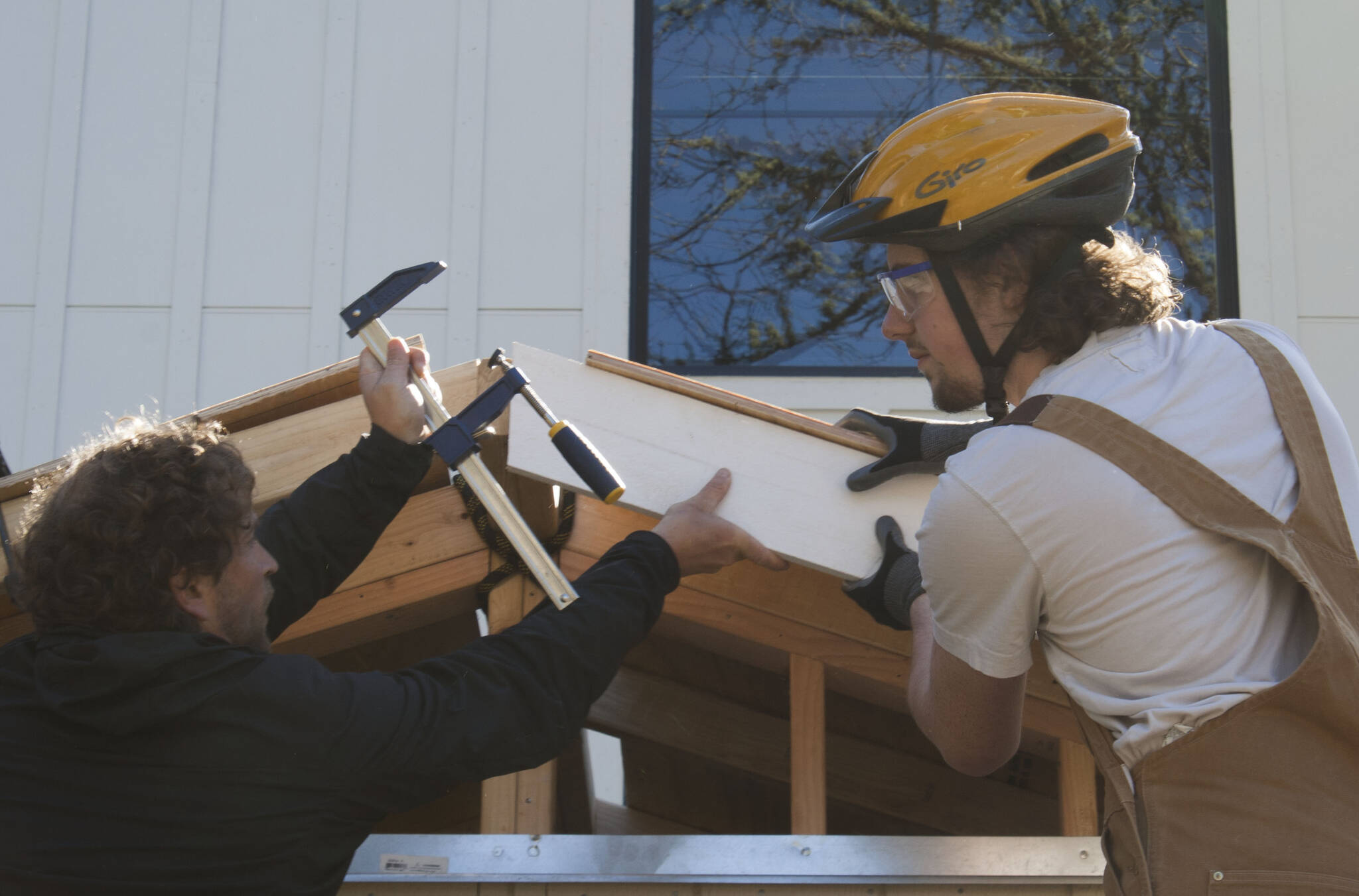Not all the construction around Winslow is from road crews. Eight students at Hyla School are elbow-deep into building a tiny home.
Hyla has partnered with the Low Income Housing Institute in Seattle—a developer that specializes in affordable housing for homeless, low-income and housing-insecure people in Washington—to construct one of the organization’s tiny homes.
Each structure is a cozy single room 8- by-12 feet wide, or 96 square feet of living space. It’s simple, but there are two windows and a door that locks — which is still a respite for people who have been living on the street, the institute wrote on its website. The organization provides all the materials and instructions for assembly — which works out, said 10th-grader Vera Cromrich, because this is the first time many of the students have built a structure.
“This was definitely a good learning opportunity, but I didn’t know how much measuring and planning went into construction projects,” Cromrich said.
Cromrich has worked with their grandfather on smaller projects, but nothing of this scale. Neither has freshman Clark Morber; both students were surprised at the amount of work that goes unseen when building a house.
“Even in a small building, there’s a lot of consideration that goes into climbing, measuring, gathering all the materials, framing it and putting it up,” Morber said. “We’ve been very lucky that we can learn on a project like this.”
Eric Saksa, upper-grade science teacher at the private school, said he’s seen new strengths emerge in students since the project began. Some who have struggled in a traditional classroom setting have thrived, he said — including showing up to school early to work on the project.
Once the tiny home is complete, the institute will retrieve the structure and seek placement for it in King County. The developer operates 18 tiny home villages around Puget Sound, including Seattle, Tacoma, Olympia and Tukwila.
Saksa and Brad Waugh, upper grades international studies teacher, hope that their students take away a sense of empowerment and curiosity for construction. “Physical and technical knowledge are important life skills,” Waugh said. “But there’s also a psychological aspect to learning about aspects of housing insecurity. There’s a sense of, ‘I’ve done something practical about this.’”


